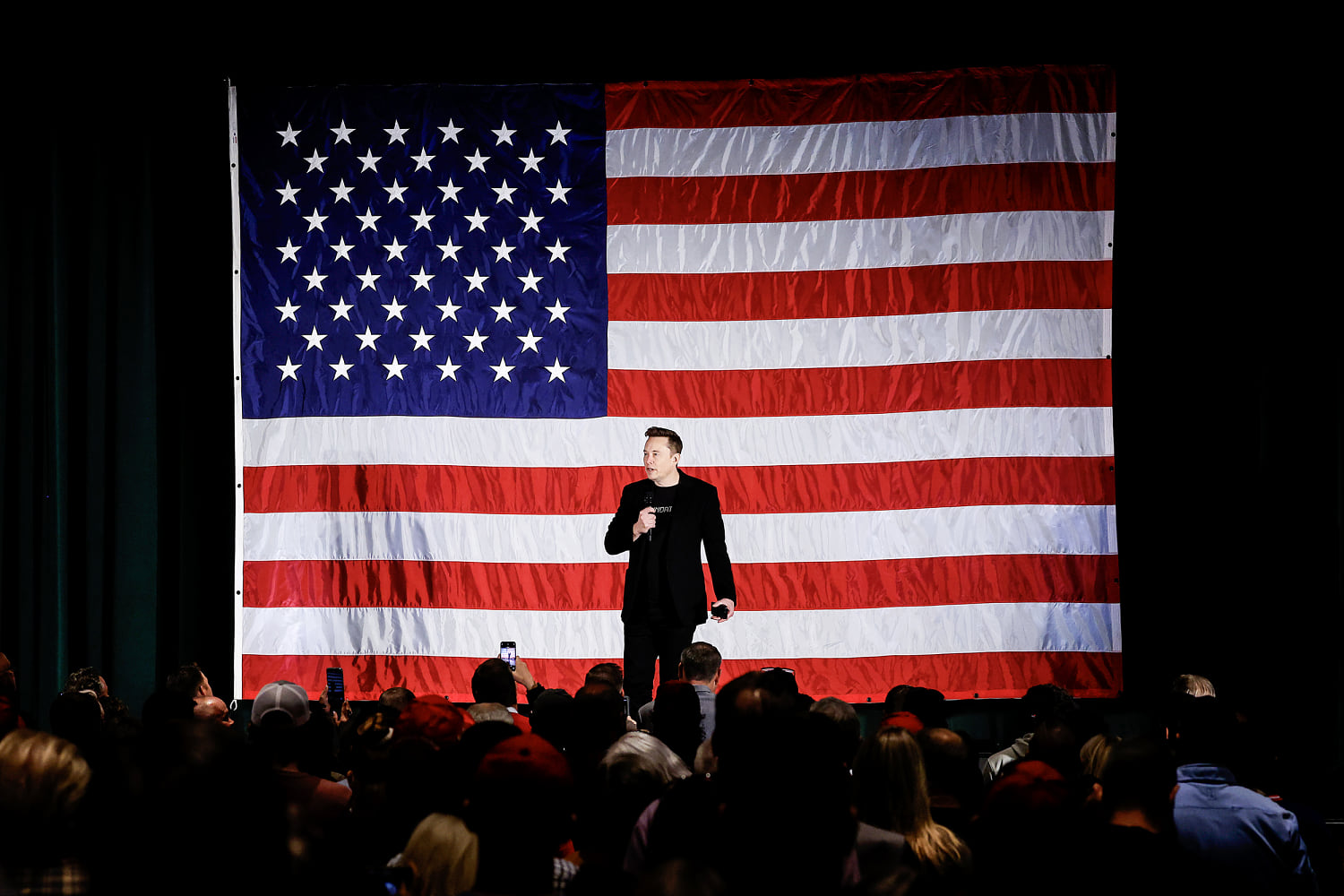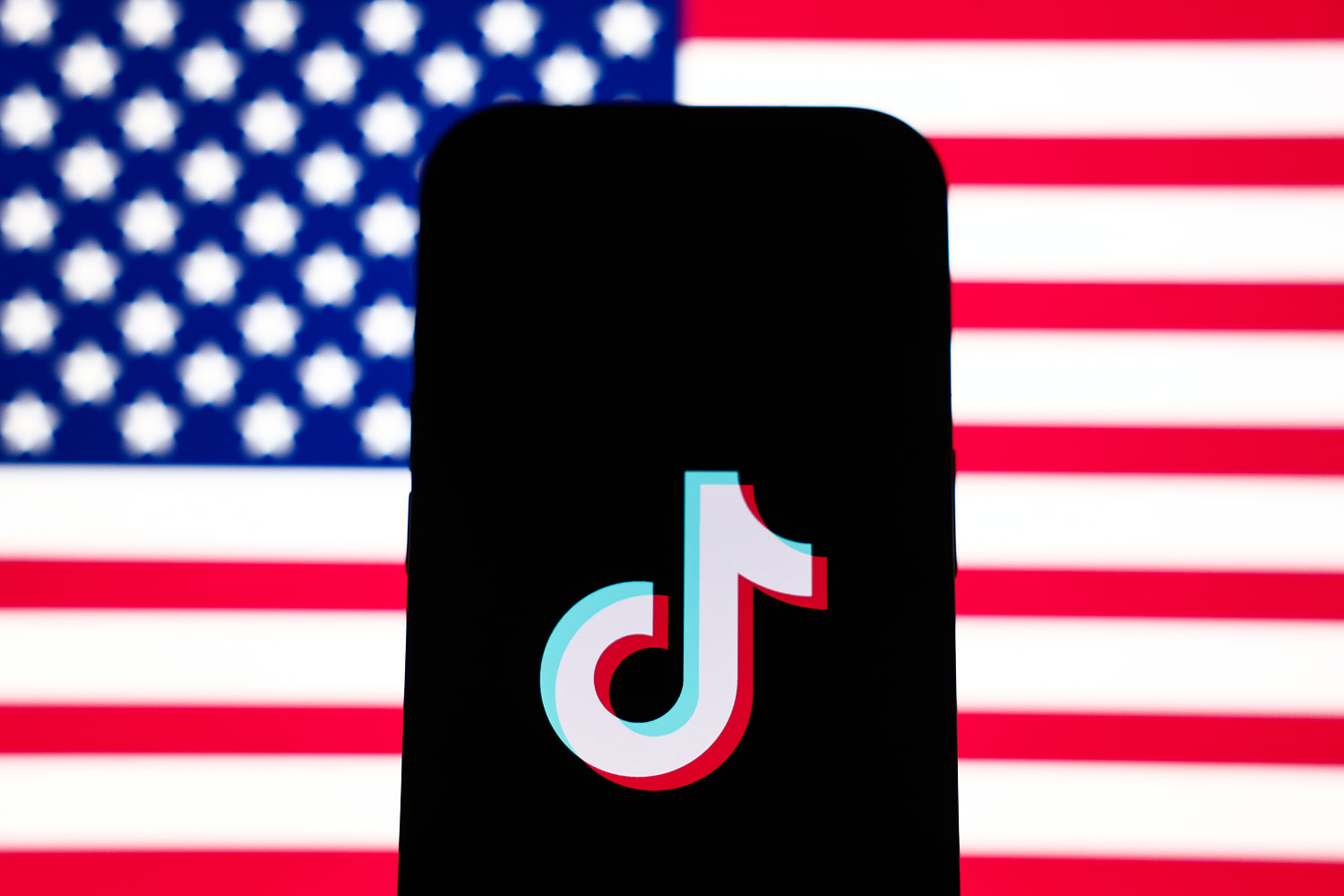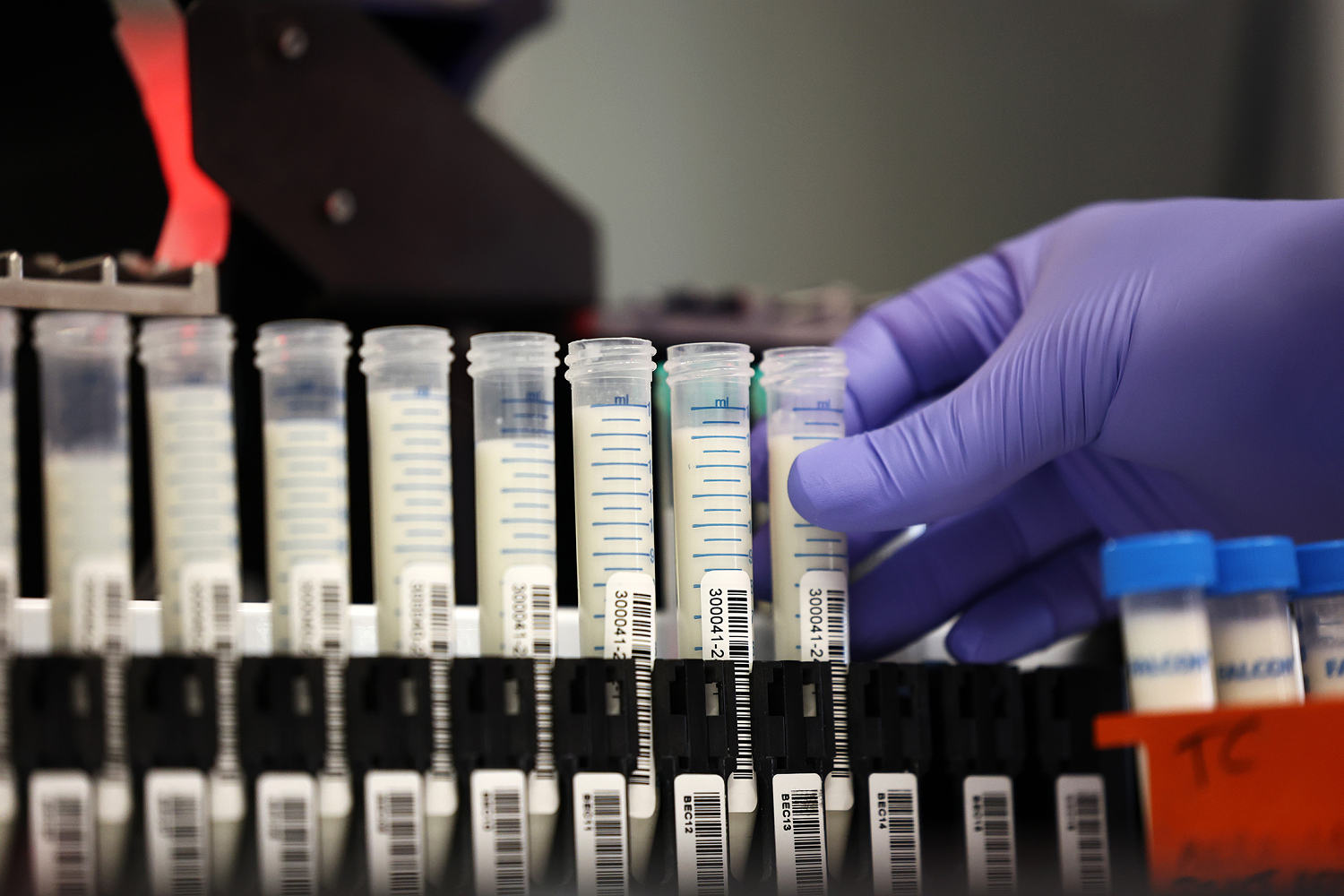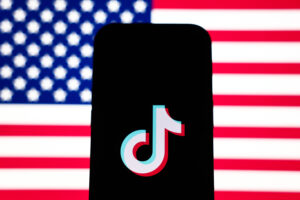The Dictatorship
After the Matt Gaetz fiasco, some accountability is in order

Donald Trump’s transition process was supposed to be relatively smooth. A recent Semafor reportfor example, noted that the president-elect’s transition was “designed to be ‘orderly’ by advisers who have more eager congressional Republican allies this time around.”
But, the report added, the “consistent chaos and confusion that defined Trump’s first administration are already descending on Washington.”
By this point, the list is probably familiar. More than seven weeks after Election Day, the incoming GOP president has been plagued by personnel flopslegislative failuresdiplomatic debacles and a bizarre preoccupation with a “mandate” that quantitatively does not exist. By any fair measure, Team Trump is struggling with the most shambolic transition process in modern history, as the Republican steps on one rake after another.
There’s one specific fiasco, however, that warrants special attention. David Firestone’s latest column in The New York Times rang true:
There is so much repellently sleazy behavior documented in the House Ethics Committee report about Matt Gaetz that a reader has to stop every few pages to look away and focus on what still seems astounding: This is the man that Donald Trump wanted to be the attorney general of the United States, the highest-ranking law enforcement official in the land, the leader of the Department of Justice.
The House Ethics Committee — in a report released to the public the day before Christmas Eve — found “substantial evidence” that the Florida Republican “regularly” paid women for sex and had sex with a 17-year-old during his tenure on Capitol Hill. The same report accused Gaetz of using or possessing illegal drugs, including cocaine; accepting improper gifts; and helping a woman “with whom he engaged in sexual activity” in obtaining an expedited passport.
The committee found “substantial evidence that Representative Gaetz violated House rules, state and federal laws, and other standards of conduct prohibiting prostitution, statutory rape, illicit drug use, acceptance of impermissible gifts, the provision of special favors and privileges, and obstruction of Congress,” the report added.
Gaetz has repeatedly denied any wrongdoing. A separate Justice Department investigation into allegations he engaged in sex trafficking concluded last year without bringing any charges against him.
It is difficult to say with confidence whether Trump knew about any of this when he chose the former congressman to serve as attorney general. The president-elect and his team don’t appear to be investing much time or energy into any credible vetting process, so it’s possible they were in the dark about the scope and scale of Gaetz’s alleged misconduct. It’s also possible, of course, that Trump and his team were indifferent to the seriousness of the allegations.
But either way, the larger point remains the same: The incoming president could’ve chosen anyone to lead federal law enforcement in the United States. Trump settled on a politician who, according to the House Ethics Committee’s findings, “regularly” paid women for sex, had sex with a 17-year-old, accepted improper gifts, and used or possessed illegal drugs.
And that, in and of itself, deserves to be its own scandal. The list of mistakes the president-elect has made during his transition process is not short, but the Gaetz debacle is special.
What does it say about Trump and his judgment when, given an opportunity to pick anyone to serve as attorney general, he chose someone accused by the House Ethics Committee of having possibly “violated … state and federal laws”?
Let’s not forget that during Gaetz’s eight-day tenure as Trump’s choice to oversee the Justice Department, the president-elect reportedly called senators directly to lobby on the former congressman’s behalf, effectively vouching for Gaetz.
The funny thing about putting one’s credibility on the line is that there are supposed to be consequences when they fail in humiliating fashion.
What’s more, it’s not just Trump. President-elect JD Vance personally escorted Gaetz from office to office, putting his own credibility on the line in the hopes of advancing Trump’s ridiculous selection. A variety of Republican senators — South Carolina’s Lindsey Graham and Alabama’s Tommy TubervilleI’m looking in your direction — also indicated that they were inclined to confirm Gaetz to one of the nation’s most powerful and important offices.
Maybe they, too, ought to also face some accountability in light of the allegations raised in the House Ethics Committee’s report? Doesn’t it make sense to conclude that their own reputations have taken a meaningful hit? Isn’t it worse given that the former congressman’s prospective nomination collapsed after eight days, meaning they did this for nothing?
The Gaetz scandal isn’t just about Gaetz. It’s also about those who thought it’d be a sensible and responsible move to elevate the Florida Republican to the attorney general’s office.
Steve Benen is a producer for “The Rachel Maddow Show,” the editor of MaddowBlog and an BLN political contributor. He’s also the bestselling author of “Ministry of Truth: Democracy, Reality, and the Republicans’ War on the Recent Past.”
The Dictatorship
How the DOGE guys accidentally launched a MAGA civil war

Elon Musk isn’t just the richest man in the world, the biggest donor to President-elect Donald Trump’s 2024 campaign and arguably the most successful crony capitalist of all time. He’s also an avid conspiracy theorist and a purveyor of misinformation. And when it comes to the way he censors critics and elevates his preferred political ideologies on X, he’s a massive hypocrite.
Additionally, over the past few weeks, Musk has yet again demonstrated a soft spot for racists, a keen interest in bullying institutions he can’t control into submission and, like Trump, incoherent political principles he’ll jettison the moment they run counter to his feelings.
When it comes to the way he censors critics and elevates his preferred political ideologies on X, he’s a flaming hypocrite.
Days after Musk praised the extreme-right, Nazi-sympathizing political party Alternative for Germany (AfD) as “the only hope for Germany,” Mediaite reported that Musk is a paid subscriber to an openly racist, pro-apartheid South African X account. (Musk did not immediately respond to requests for comment.)
But just this week, Musk and his DOGE co-chair Vivek Ramaswamy have been mired in a MAGA civil war — aired out on his fetid cesspool of toxic discourse, X — in which they were on the less racist side.
At issue are the DOGE tycoons’ support for H-1B visas to lure the best international tech workers to America — which the xenophobic MAGA faithful considers a betrayal of the anti-immigration platform they’ve so long expected from Trump. After Ramaswamy slammed American culture for supposedly “venerat[ing] mediocrity over excellence,” a predictable wave of racism and antisemitism from high-profile MAGA accounts followed. (One such prominent account tweeted, “Indians are the foot soldiers for the jews.”)
Pretty disgusting and horrific stuff! And yet, it’s hardly out of character for Musk’s X.
And while Musk reportedly said he bought the site formerly known as Twitter because he was worried about the “future of civilization” and wanted to end what he and his allies incorrectly asserted was the deliberate suppression of conservative accounts — some verified MAGA accounts have complained that they’ve been summarily demonetized and stripped of their blue checkmarks. (Musk didn’t comment on these complaints directly, but he did post on Thursday that “any accounts found to be engaged in coordinated attacks to spam target accounts with mute/blocks will themselves be categorized — correctly — as spam.”)
Also this week, Musk re-upped his attacks on Wikipedia, exhorting his followers on Tuesday to “Stop donating to Wokepedia until they restore balance to their editing authority.” Musk, who claimed he offered to buy the online community-edited encyclopedia for a billion dollars if it rebranded as “Dickipedia,” amplified a troll account that shared a misleading graphic that falsely indicated Wikipedia spends almost a third of its budget on Diversity, Equity and Inclusion (DEI) efforts.
This is the Musk playbook: prioritizing his feelings over facts, and self-interest over altruism.
Writing in Arc DigitalNicholas Grossman explained that Wikipedia is quite transparent with its budgets, and “most of the ‘equity’ spending funds Wikipedia contributors in less covered countries and non-Western languages, while the spending marked ‘safety and inclusion’ helps various contributors deal with disinformation, persecution, and complicated or repressive laws. The result is that, for example, an entry on Uganda is written by credentialed experts on Uganda and actual Ugandans, rather than, say, a brigade of racist Elon Musk fans from North America … Whatever you think of DEI training seminars, that’s not what this is.”
Grossman added that “Musk has been going after Wikipedia for a while because its entry for Elon Musk doesn’t go along with his self-promotional myth-making, and other entries prioritize the truth over his preferred distortions.”
This is the Musk playbook: prioritizing his feelings over facts, and self-interest over altruism.
Endorse a virulently racist, anti-immigration political party in Germany — then endorse an increase in visas so that your preferred immigrants can come work at your American tech companies.
Regularly declare yourself a free speech absolutist and decry Twitter’s previous owners as censorious partisans with opaque moderation policies — then severely throttle X accounts under the vague pretense of fighting “spam.”
Obsess over supposed media “bias” and “lies” — then share false information about a largely trustworthy and self-correcting website that even your obscene wealth can’t bend to your will.
For the world’s richest man, it’s not about honesty and principles, it’s about ego and vibes.
Anthony L. Fisher is a senior editor and writer for BLN Daily. He was previously the senior opinion editor for The Daily Beast and a politics columnist for Business Insider.
The Dictatorship
Trump asks Supreme Court to pause law that could ban TikTok

President-elect Donald Trump on Friday urged the Supreme Court to pause a law that could ban TikTok nationwide starting Jan. 19 if its Chinese owner doesn’t sell the popular social media app to an American company.
In a 25-page amicus brief filed with the court, Trump asked the justices to stay the Jan. 19 deadline — which is one day before Inauguration Day — so his administration could “pursue a negotiated resolution” that would “obviate the need” for the justices to rule on the case.
“President Trump alone possesses the consummate dealmaking expertise, the electoral mandate, and the political will to negotiate a resolution to save the platform while addressing the national security concerns expressed by the Government — concerns which President Trump himself has acknowledged,” the brief stated.
TikTok and its parent company, China-based ByteDance, appealed to the Supreme Court last week after lower courts rejected its challenge to the law. The justices agreed to hear the challenge and set oral arguments in the case for Jan. 10.
The law at the center of the case — called the Protecting Americans from Foreign Adversary Controlled Applications Act — stems from bipartisan concerns that the Chinese government could access data about American users.
TikTok arguesthe law violates free speech rights under the First Amendment for its roughly 170 million American users.
In his brief on Friday, Trump said he takes “no position on the merits of the dispute.” Instead, he suggested he intends to personally negotiate a resolution that focuses on “preserving the First Amendment rights of tens of millions of Americans, while also addressing the government’s national security concerns.”
TikTok CEO Shou Zi Chew met with Trump at the president-elect’s Mar-a-Lago resort in Florida last week, NBC News reportedciting a source familiar with the plans.
During a press conference earlier that day, Trump said he has a “warm spot” for TikTok and said his team would “take a look” at the app and the possible ban it faces.
TikTok and the Justice Department also filed briefs in the case on Friday, reiterating their respective arguments on the matter.
Hayley Miller is the senior blog editor for BLN. Previously, she was a senior reporter on HuffPost’s breaking news team. Before she was a reporter, she was a senior editor on HuffPost’s blog team.
The Dictatorship
What to know about the spread of the bird flu

The spread of the bird flu among humans and other mammals in the United States has sparked some concern among public health experts in recent weeks, though U.S. officials say the risk it currently poses to the public is low.
Since the first reported outbreak among dairy cattle in March, this particular bird flu virus, H5N1, has spread across hundreds of herds in more than a dozen states. More recently, authorities have reported at least two severe human cases in North America and issued recalls of pet and human foods due to bird flu contamination.
Here’s what to know about the outbreak.
How does bird flu spread?
Avian flu, commonly known as bird flu, has been around for decades, but a recent increase in cases among wild birds likely led to an outbreak among dairy cows in Texas earlier this year, according to the Johns Hopkins Bloomberg School of Public Health. Since then, bird flu has been detected in other animals; last week, an animal sanctuary in Washington state announced that 20 of its big cats had died of confirmed cases of bird flu.
Bird flu may be transmitted through exposure to infected animalssuch as consuming undercooked or raw meat from infected animals or directly handling such animals. An Oregon-based company issued a voluntary recall of raw and frozen pet food this week after a house cat died of bird flu. Oregon officials said the cat caught an infection from the company’s pet food.
Earlier this month, the California Department of Public Health suspended the distribution of Raw Farm raw milk products after milk samples tested positive for bird flu virus. No illnesses were reported in connection with the contaminated raw milk.
The U.S. Department of Agriculture has said poultry and eggs, if properly handled and cooked, are safe from viruses and bacteria, including bird flu.
How many human cases in the U.S.?
There have been 65 recorded human cases of bird flu in the U.S. this year, a vast majority of which was due to exposure associated with dairy cow and poultry operations, according to the Centers for Disease Control and Prevention. In November, a child in California was determined to have been infected with bird flu, the CDC said.
There is no evidence of human-to-human transmission, and infections in humans have largely been mild. But authorities have not been able to locate a source of infection in several human cases, and two severe cases among people — one in British Columbia and one in Louisiana — have alarmed experts.
In November, a previously healthy teenager in British Columbia, Canada, contracted a severe case of bird flu. Local authorities said this week that there was no evidence of human-to-human transmission from the patient, though they could not locate the source of the teenager’s infection. The patient is still in critical condition.
The U.S. similarly recorded its first severe case of bird flu in a person in Louisiana last week, after suspected contact with an infected backyard flock. The patient was hospitalized in critical condition. A genetic analysis of samples from the patient revealed that the virus may have mutated in the patient to become more transmittable among humans, the CDC said Thursday, but there is no evidence thus far that it has passed along.
The Louisiana patient was infected with “a strain of the virus different from the one affecting dairy cows and causing sporadic cases in farmworkers in the U.S.,” NBC News reported.
How dangerous is it?
For now, public health authorities say the overall risk of bird flu to the public is low, given that it has not developed a proven ability to transmit from human to human. However, some experts fear the virus could further mutate to do so. They point to the urgent need to eliminate the virus — or at least slow its spread before it turns into a full-blown pandemic.
Clarissa-Jan Lim is a breaking/trending news blogger for BLN Digital. She was previously a senior reporter and editor at BuzzFeed News.
-

 The Josh Fourrier Show2 months ago
The Josh Fourrier Show2 months agoDOOMSDAY: Trump won, now what?
-
Economy2 months ago
Fed moves to protect weakening job market with bold rate cut
-
Economy2 months ago
Harris dismisses Trump as ‘not serious’ on the economy in BLN interview
-
Congress2 months ago
Trump’s border czar promises ‘hell of a lot more’ deportations than first term
-
Economy2 months ago
It’s still the economy: What TV ads tell us about each campaign’s closing message
-
Health Care2 months agoAnti-abortion forces broke the left’s post-Roe winning streak, but 7 more states enacted protections
-
Economy2 months ago
Biden touts economic gains, acknowledges a long way to go
-
Health Care2 months ago
More abortion ballot measures are set to pass. Then state courts will have their say.










